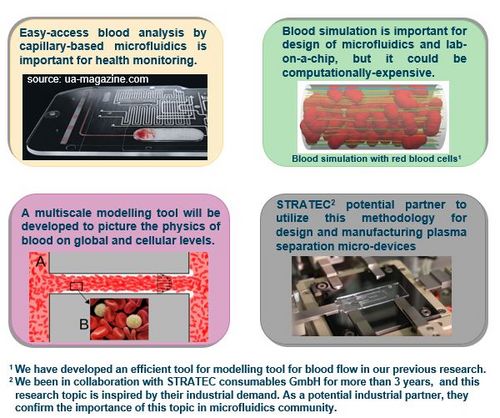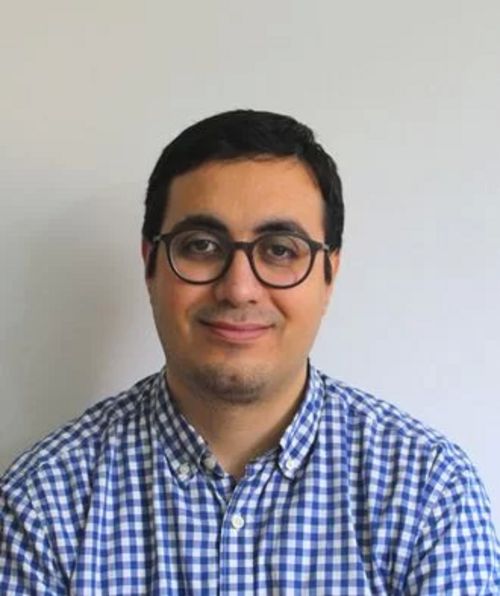Mahdi Saeedipour: Multiscale modelling of capillary-based blood separation.
Optimize blood diagnostic equipment
Blood is the most important biological fluid and the ability to separate blood into its component is a key step to disease and infection diagnosis. Exploiting the capillary actions in bio- microfluidic devices could help to reduce costs.
Project Details
Young Researcher Project
Projektleitung
Mahdi Saeedipour
Call
09/2020
For the design and manufacturing of such de- vices, an indepth biophysical understanding of blood flow in different scales, in particular at the cellular level, is required. The main objec- tive of this research is to provide a multiscale simulation tool applicable to the design of capillary-based microfluidic devices. We com- bine the volumebased computational fluid dynamics (CFD) and discrete element method (DEM) to perform simulations of the capillary-driven blood flow at two different levels of complexity.

On the small meso-scale level we employ an interface capturing technique coupled with an im- mersed boundary method (resolved VOF-DEM) for the fully-resolved simulation of the plasma-air meniscus in the presence of biological cells. Biological cells are described by different particle-representative models, and biophysical phenomena such as red blood cell hemolysis and aggre- gate will be modelled. On the large meso-scale levels we still track the plasma-air interface, but the presence of biological cells is modelled by dispersed particles smaller than the computational grid (unresolved VOF-DEM).
These two simulations are then combined using a scalebridging concept to provide a clear picture of the blood transport in micro-devices with lower computational costs. The research outcome would help the microfluidics community to design and optimize devices for rapid and cheap blood diagnostic analysis at resource-limited situations such as home and schools.
Dr. Mahdi Saeedipour, MSc.
Dr. Saeedipour studied aerospace engineering in Tehran before coming to JKU in 2012. Since then, he has joined the Department of Particulate Flow Modeling as a lecturer and project collaborator, and since 2015 as a project manager. His special interests are modelling interfacial flows, multiphase turbulence, atomization and sprays, microfluidic simulation, computational fluid dynamics.
In 2017, Mahdi Saeedipour completed his PhD at JKU with distinction, and after the end of the project, his habilitation is on the agenda.

 Go to JKU Homepage
Go to JKU Homepage


